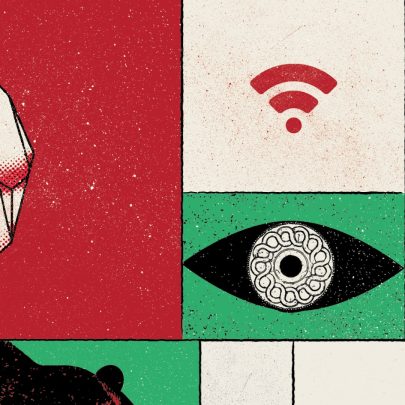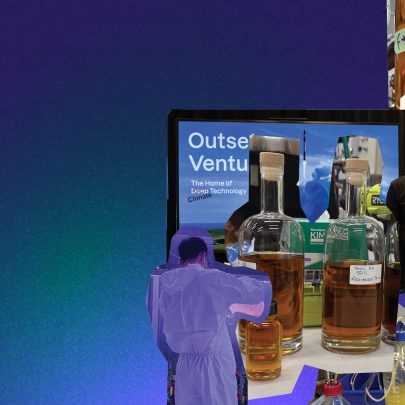Sep 15, 2016 Business
The New York-based entrepreneur who made a fortune by his mid-thirties is redefining success, searching for meaning and looking to New Zealand for answers.
This article was first published in the July/August issue of Metro. Photos by Garth Badger.
“What’s in it for you?” asks Katherine Yang. She’s put on her smart black shirt and boots and is sitting on the sofa at Hotel DeBrett next to entrepreneur Derek Handley, answering his stream of questions in a whisper-quiet yet assured voice.
Yang, 18, has recently finished ACG Senior College and in August will head off to Stanford University in California to study computer science and fine arts. Handley is on one of his frequent trips back to Auckland from his base in New York. Looking more like a student than Yang does in jeans, flannel shirt and Vans, this informal meeting over a glass of wine is Handley’s way of vetting her to join the growing pack of clever school-leavers on his Aero Foundation fellowships before they disappear off to do grand things at Ivy League universities — possibly never to be seen again. That’s why Handley wants to get to them first: to ensure our best talent stays connected to New Zealand.
Yang picks her five fantasy dinner party guests (neuroscientist Sam Harris, electric car evangelist Elon Musk, Leonardo da Vinci, Stephen Fry and a toss-up between Marina AbramoviC, Peggy Guggenheim and Ai Weiwei) and poses a business case for ethical lab-based meat production, before she gets to turn the tables on Handley. What does he get out of this fellowship?
“It’s fun,” he says. “I want to do what I can to help young people burst open what they think is possible.”
“It’s fun. I want to do what I can to help young people burst open what they think is possible.”
Yang hits back with another cracker question. “What would you have done if you had this opportunity?” Handley thinks a while. “Probably tail someone,” he replies. “Start a company.”
Now 38, Handley has been starting companies since he was eight and living in Hong Kong, where he was born to a Scottish father and a Malay/Indian/Chinese mother. His first enterprise was shipping rubber watch protectors over to his cousin in New Zealand, who lost interest and the business went nowhere.
In his teens, after his family moved to Auckland, he traded computer games from his bedroom using a brick mobile phone he bought with his earnings (it was 1995). While studying architecture and business at Victoria University in Wellington, he had little success importing 2000 Tamagotchis, because the shipment took longer to arrive than the world’s most irritating toy fad lasted.
Always fascinated by patterns of behaviour and the way the world works, since graduating Handley has been involved in a string of tech-based businesses, from online sports betting to soundtracks for e-books. He may have been too late for Tamagotchis but he was ahead of the game when it came to marketing through mobile phones.
He is best known for The Hyper-factory, the award-winning advertising agency he built with his brothers Geoff and Callum and ran through his 20s. With offices from Shanghai to Hyderabad to New York and global brands like Nestlé, adidas and Coca-Cola as clients, Handley dodged near-collapse during the global financial crisis before selling The Hyperfactory to Meredith Publishing in 2010 for a comfortable sum. It may not be the billion-dollar goal he wrote about in his book Heart to Start (2013), but provided enough to live on in New York with wife Maya and three-year-old son Finn, spend weekends at their farmhouse in the Catskills and pursue exactly what he wants.
Making megabucks is no longer his motivation. The question he says he now asks himself is not, “What’s in it for me?” but “What’s in it for all of us?” And even, “What’s it all about?”
When people ask what he’s doing now, he tells them he’s trying to work out what it means to live a meaningful life in a modern world that’s so obsessed with “nowness”. You’d think that’d put most sceptical, business-minded people in a spin, but Handley says everyone he talks to leaps hungrily into the discussion.
“It’s like a door into an interesting cave in our souls. It’s like you’ve cracked it open a little bit and they want to prise it open and get in there. It doesn’t get opened while you’re walking around in ordinary life.”
Four years ago, Handley resolved to read all the key religious texts. He’s done the Bible, the Bhagavad Gita and is now on the Koran. He also hoovers up philosophy — Heidegger, Sartre, Aristotle, Confucius, Taoism and Marcus Aurelius. He’s attended Alain de Botton’s School of Life in London, been to Hillsong church and done the controversial Landmark Forum course. He is nervy talking about Landmark because he’s wary of coming across as a New Age cultist. “I did it because I know it has had a profound effect on lots and lots of people. I did it because I wanted to know why it was succeeding.”
In September, he’ll begin a master’s degree in religion and philosophy at New York University. “It’s a very appropriate place to explore this kind of stuff,” says Handley, pointing out that as religiosity tumbles, our opportunities to discuss weighty existential questions do, too. “We are expected to navigate them on our own, in a vacuum; they are not the questions of dinner conversations or bar talk.”
This big-picture, philosophical study doesn’t signify a turn towards academia for Handley, although he has an interest in education and is an adjunct professor at AUT. He sees it as the basis for whatever business he will build next. “As an entrepreneur it will be in the area of a hybrid, a mash-up of this stuff put together in a way that has not been put together before. It’s still super vague.”
All this puts Handley squarely in the crosshairs for accusations of self-aggrandisement (and worse, according to Whale Oil’s Cameron Slater). Writing a book about your achievements and putting your head above the parapet to present business theories and leadership ideas at talk fests doesn’t always endear you to the average Kiwi. Yet Handley remains sanguine.
Georgia Lala
Aera Fellow
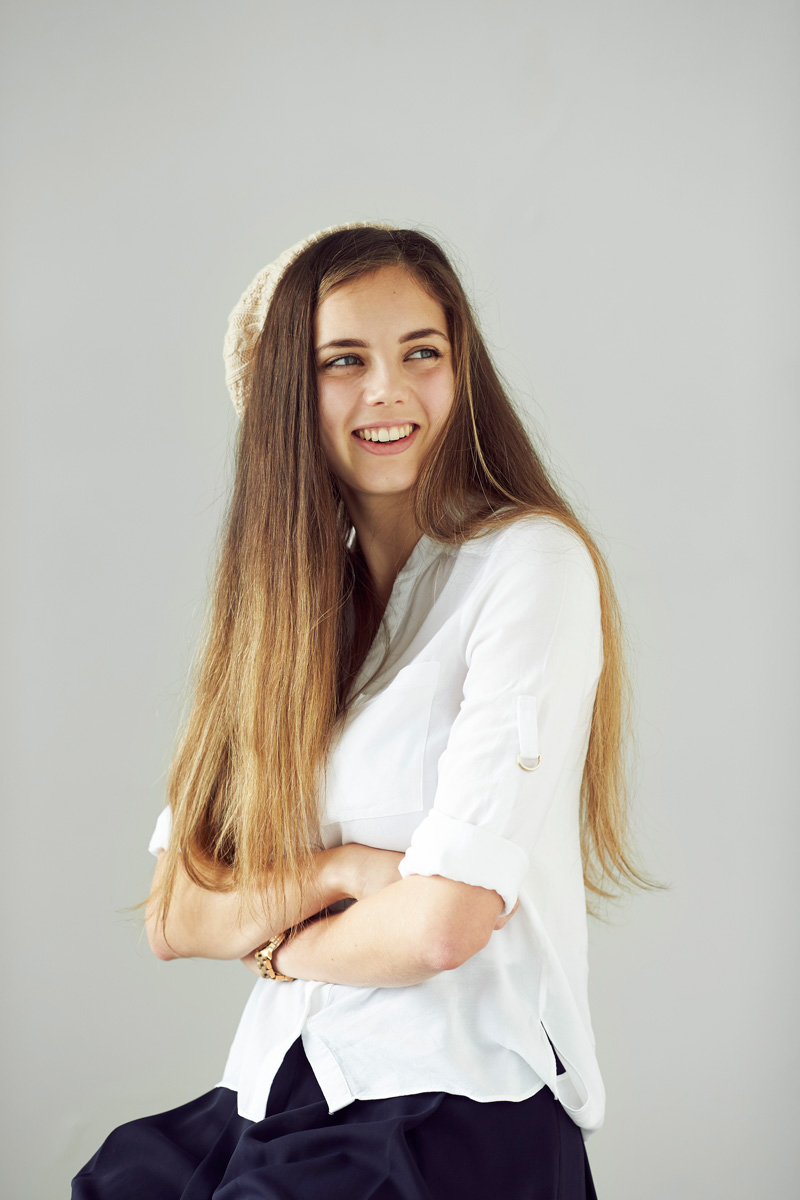
It’s Friday afternoon and Georgia Lala and I are on the phone talking about Derek Handley when a call comes through on her other line. “He’s calling right now,” says Lala with a laugh, texting him back while I’m still on the phone. “He texts me quite a lot. This is the first call since Wednesday.”
Recipient of the $400,000 Robertson Scholarship, Lala is going to Duke University in Durham, North Carolina, in August to study natural sciences, all expenses paid. Before she heads off, she’s working about 20 hours a week at the Aera Foundation. She also works part-time for Crimson Consulting, helping students to prepare for applying for universities and scholarships.
Lala, 18, ticks all the boxes. She was a prefect, proxime accessit and peer support leader at Dio. She plays saxophone, one of her artworks is in the James Wallace collection, and she has already proved she has a socially conscious entrepreneurial streak. While still at high school, Lala started a business called Root Aquaponics, making edible gardens on top of fish tanks. The system, which she designed, recycles fish waste and bacteria from inside the tank so basil and lettuce can be grown at home without food miles and wasteful farming practices. Half of the profit from each unit sold goes towards funding a school or kindergarten. Last year, Lala’s research on aquaponics won her the Prime Minister’s Future Scientist Prize.
Lala says Handley is “very chill … He knows what he wants and is quite blunt about it, which is really helpful in terms of figuring out what he wants.”
Handley has assigned her three issues to research: ways to reduce shipping wastage in deliveries from online firms such as Amazon, different possiblities for automation, and opportunites for technology development for blind people.
“He’ll say do this, this and this and I’ll have a 10-minute panic about how I don’t know how to do any of that,” says Lala. “Then I kind of nut through it, working through it as a learning experience producing the brief. It’s an opportunity to give it a try and get that experience under my belt.”
The genesis of this voyage of discovery came from where many transformative ideas spring — the well of despair. By 2009, the recession had The Hyperfactory in its grip; the company was burning through money as it was trying to grow and was struggling to raise more. It looked like Handley, once the wunderkind of New Zealand business, was about to lose everything. Peter Morrison, a friend since university and The Hyperfactory’s digital production manager at the time, remembers Handley going through a shift. “It was one of the most stressful times in my life,” says Morrison. “I remember going to see Derek one day about something that I thought would upset him and he was cool about it. He was Zen. It was like the flick of a switch.”
Handley says that when faced with watching all he had worked on for a decade disappear, he started to ask himself about bigger problems. If he was going to be forced to start over again, he resolved to work only on businesses that addressed issues facing the world. That realisation gave him a sense of peace, and he was able to get through the mess that was before him.
“It’s a totally different way to work, to go in the office and think about it in the context of, ‘Okay, this company is running out of money. We’re all at risk here. But you know what, there are some other pretty shit things going on in the world.’ Putting it in context means the level of stress almost disappears. I can basically never get stressed anymore. In the context of how bad it is for some people and some parts of the world, how could you be stressed? It’s rude for you to be stressed!”
In 2010, after the lawyers finalised the sale to Meredith, Handley got them to set up a foundation. Initially called the Handley Foundation, he had no idea of its function. “I thought scholarships, working with young people. I didn’t really understand what problems were in those days. I didn’t know what was not working in the world. I wasn’t paying attention.”
After a stint working for Richard Branson to set up The B-Team, a not-for-profit leadership group focused on ways of doing business better that pulled in highflyers like publisher Arianna Huffington, Toms Shoes founder Blake Mycoskie and Nobel peace laureate Muhammad Yunus, Handley turned his attention to that dormant foundation.
He ran an online recruitment campaign in 2014 called the Shoulder Tap. “The concept was this,” says Handley: “‘If you look at your life and you don’t really find meaning in your success that you have today, whether you’re in banking or big business or a big corporate, and you want to use those skills to create social value and try something totally different, then you should think about applying.’ And people just responded to it. They didn’t even know what the fucking job was. They were in!” After 1000 people applied from 30 countries, Handley had his two staff.
Wendy Lee
Aera Fellow
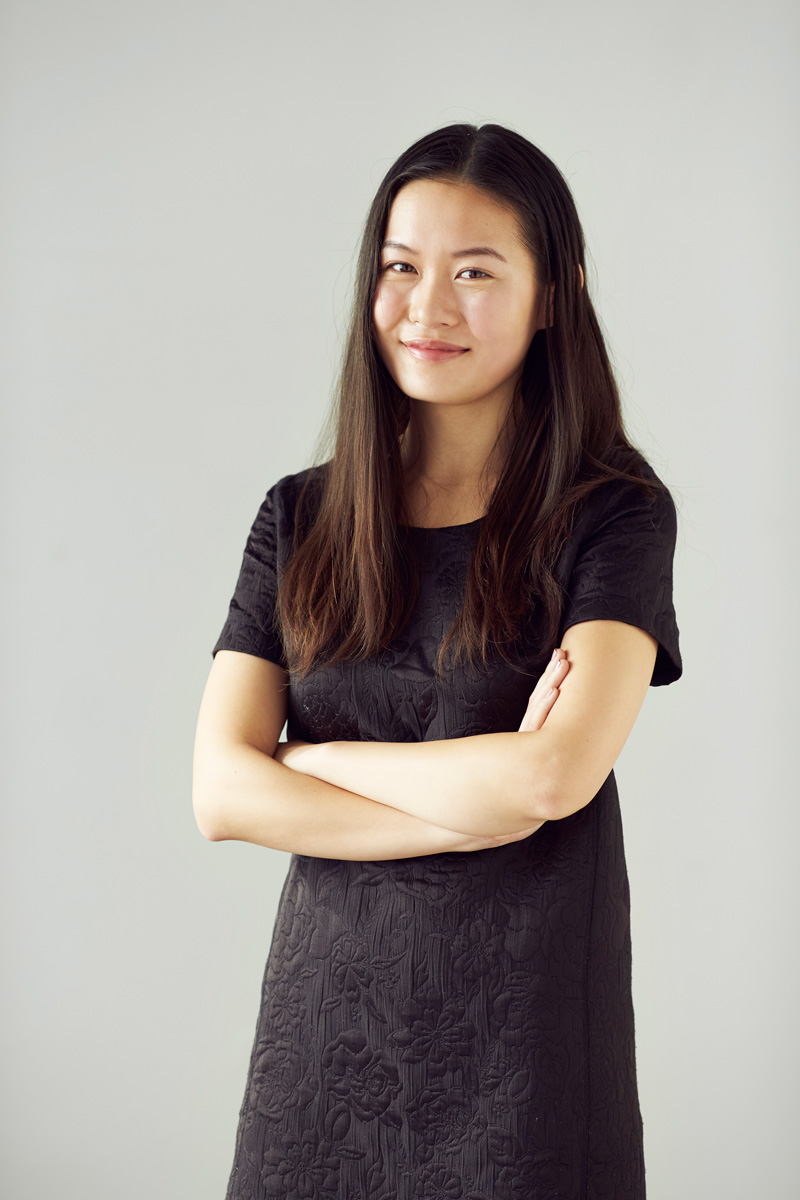
Wendy Lee’s hero is billionaire tech entrepreneur Elon Musk. “He’s not just focused on money but on how we can advance society further. If I met him I’d be like one of those girls when they meet Justin Bieber.”
The Bucklands Beach 18-year-old is following in Musk’s footsteps. In August, she’s off to study at his alma mater, the Wharton School at the University of Pennsylvania, one of the top business schools in the world. (She turned down Yale, Duke and the University of California’s Berkley and LA campuses.) Like Musk, Lee’s got a passion for business that makes a difference, but she’s unlikely to rush back to New Zealand after her studies.
“Careerwise, probably not,” she says. “I love this country. Maybe when I retire. The population isn’t large enough to sustain anything huge. Business opportunities in America are much larger and Americans are much more vocal about how they value entrepreneurs and innovation and go-getters.”
Since finishing at Macleans College last year, Lee has been working with Handley on projects for the Aera Foundation, including Support, Don’t Punish and Eat My Lunch. Lately he’s got her researching “meaningful living in the 21st century”.
So what’s the secret? “I still need to figure out the overarching story. I’d say the things that keep popping up to me are your relationships — so having meaningful relationships with people in life. Being a kind person. Altruism seems to be really important. Also awe and gratitude are big. For example, being surrounded by nature and realising how amazing it is that things are alive and we’re on the Earth oftentimes adds meaning. There’s spirituality. And also being less materialistic, focusing more on experiences rather than objects.
“I’m still doing some research. I think the useful thing about a lot of the projects that Derek has provided me with is that while I’m learning all these incredible things, it’s also really valuable to me as a person.”
Last year, Handley rebranded the foundation Aera, from the Latin root word for “era”, because he says it’ll work on problems that are critical to the times it’s operating in. “It’s about generations. I wanted a name that could basically last hundreds of years. I think foundations fall down because everyone names them after themselves. I wanted it to represent what it represented.” So far this year, as well as working with young fellows [see sidebars], Aera has got involved in social enterprise and advocacy on hunger and drug policy issues.
In May, he partnered with Eat My Lunch as an adviser and investor in the socially-minded Auckland business that for every lunch bought, gives one to a child for free.
It looked like Handley, once the wunderkind of New Zealand business, was about to lose everything.
In April, he attended the UN General Assembly special session on drugs for his work with Support. Don’t Punish, a global network of NGOs that advocates a harm reduction approach to recreational drugs. They are calling for governments to treat drug use as a health issue, not a criminal one. Repositioning drug policy fulfils all the criteria for the kind of thing Aera is looking to tackle. The status quo, says Handley, isn’t working and there’s a growing momentum for new approaches.
“Like a lot of people, it became personal to my family. So going through that, then stepping back and looking at how ridiculous the structure was to deal with people with [drug addiction], it just became abundantly clear that it makes no sense,” says Handley.
“It was impossible to figure out what the right way to deal with these issues is because it’s criminalised and stigmatised. That makes it 100 times harder than it should be. If someone had diabetes, you could go to places and figure out how to get through the system. If someone’s a heroin addict, it’s far more complicated.”
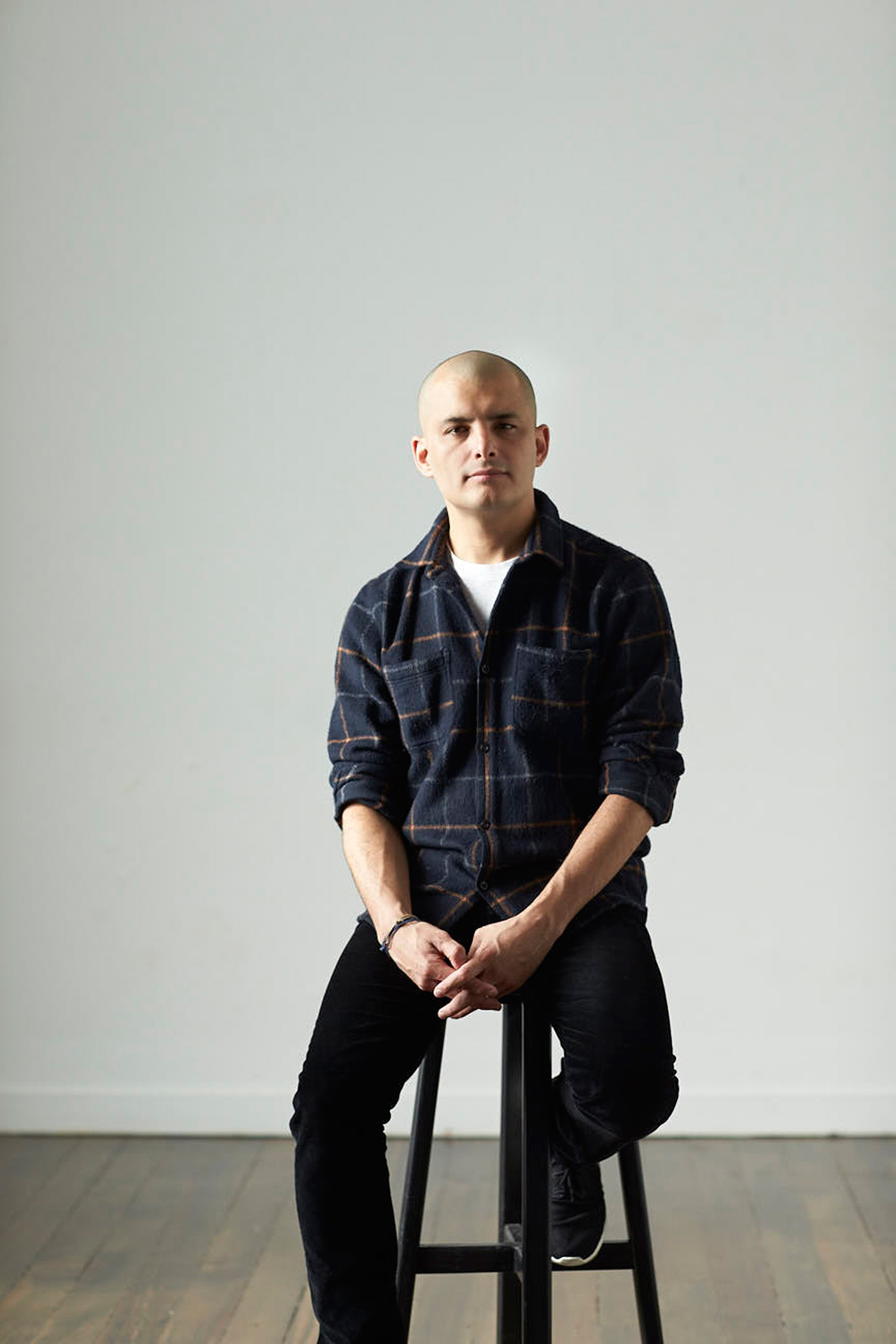 The first that New Zealand Drug Foundation executive director Ross Bell knew of Handley was when an email appeared in his inbox a couple of years ago inviting him to dinner. “We get a lot of odd emails. I was going to put it in the trash basket but I Googled his name and thought, what’s this millionaire doing?” says Bell.
The first that New Zealand Drug Foundation executive director Ross Bell knew of Handley was when an email appeared in his inbox a couple of years ago inviting him to dinner. “We get a lot of odd emails. I was going to put it in the trash basket but I Googled his name and thought, what’s this millionaire doing?” says Bell.
The dinner turned out to be a fancy affair in the private dining room at Euro. It was the second of Handley’s salon dinners, where he gets a range of people together to debate a topic. The guests included lawyer Mai Chen, a sales rep from a big alcohol company, broadcasters Clarke Gayford and Brooke Howard-Smith, someone from New Plymouth-based International Volunteer HQ, young law graduates and MP Jacinda Ardern, who made a presentation on Labour policy after the entrée was served. During the mains, Handley asked Bell to talk about drug policy reform. Later, the two men went out with the law grads and discussed the topic for so long, they outlasted the young ones at the bar. “He showed a personal and genuine interest in these complex issues,” says Bell. “There aren’t a whole lot of philanthropists jumping into drug law reform.”
It was through Bell that Handley got involved with Support. Don’t Punish. Applying skills he no doubt honed at The B Team, he saw an opportunity to recruit high-profile people as ambassadors who could amplify the organisation’s message. He managed to persuade New Zealander of the Year Lance O’Sullivan to be the flag bearer for the cause, even though the Northland doctor — a victim of a drug-fuelled home invasion as a child — was opposed to drugs after seeing the damage they cause in his community. “He got talking to Lance and converted him from being a sceptic of reform to a supporter,” says Bell. “Derek is a persuasive guy.”
Drug reform, according to Handley, is just one issue where a “petri dish” like New Zealand could lead the world. “My view is New Zealand should be right up there with the most progressive thinking about everything. We should be fully electric vehicle-friendly and have the latest state-of-the-art thinking around drug policy and medicinal drugs. Why would we want to be behind or slow on any of these things that are shaping the future? But it takes bold leadership, courage and foresight.”
Izzy Stangl
Aera Fellow
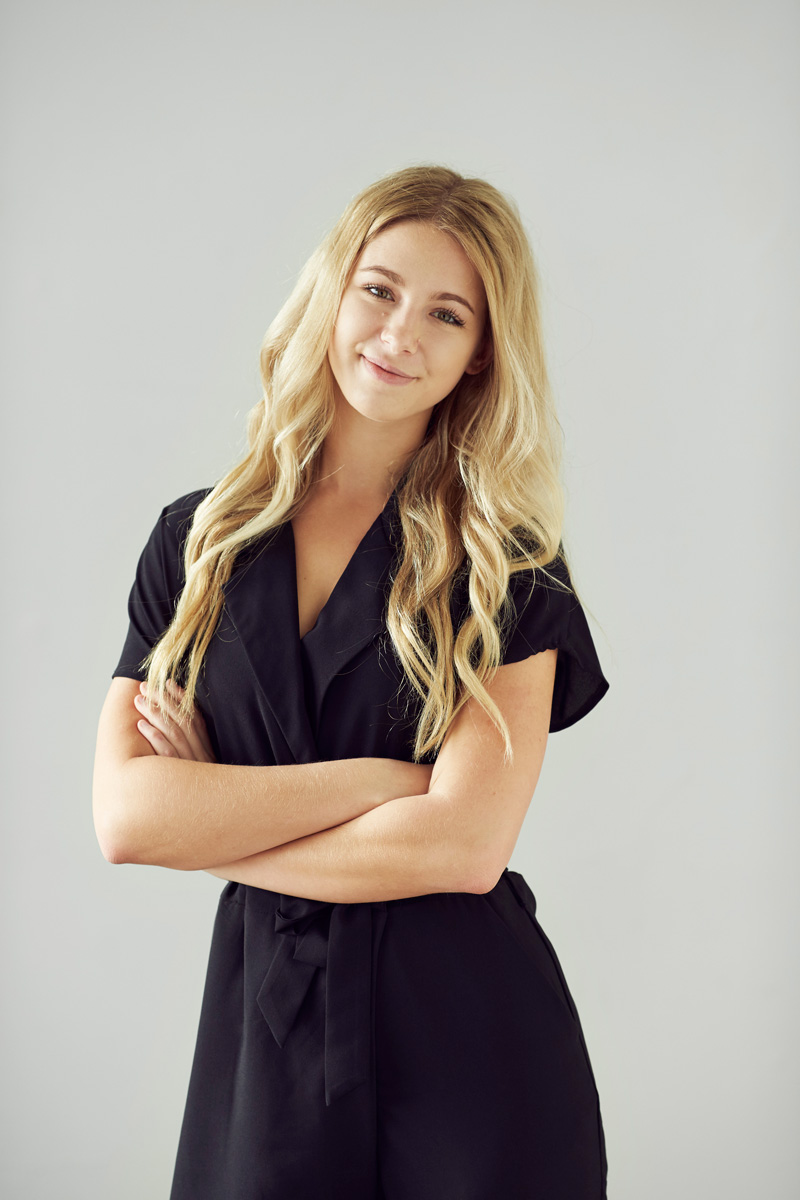
Izzy Stangl’s email address is “sidekick@…”. That’s Handley’s term. When Stangl is explaining her role, she usually goes with executive assistant. “Because that’s what people understand.”
In her second year studying marketing and design at AUT, the 19-year-old fits in about 15 hours a week organising Handley’s diary and working on his projects from her North Shore home. One minute she can be writing a university assignment, the next she is scheduling an appointment with the chief executive of Virgin UK.
Handley calls once a week to check in. “One time he said, ‘Did you catch the name of the person you were liaising with?” says Stangl. “I said, ‘No, but she was really nice. She was sending smiley faces.’ ‘That was the princess of Luxembourg,’ he said.”
When Stangl met Handley, she had no idea who he was. She had just finished Long Bay College and was invited along to be a student representative at a series of workshops AUT was running. Handley was there in his role as an adjunct professor. A few weeks later, he emailed Stangl saying he had a job proposition. She went along to the Seafarers Club and talked non-stop for two hours.
“He asked me every question under the sun,” says Stangl. “He asked me questions about politics. I don’t follow the news as much as I should. I felt so stupid. I walked out thinking I sounded like a complete imbecile. I emailed him afterwards and said, ‘Hi, Derek. Great talking to you. I’m sorry I don’t know much about politics but if I get the job I’ll work really hard.’ He said he liked that.”
Stangl has applied for an exchange to San Diego University, and like the other fellows, is considering a longer-term move to the United States. “I love the entrepreneurship community and would love to be in San Francisco and see it first-hand.”
Handley won’t be drawn on any political affiliations and says he has no political aspirations. “I don’t really know where I am politically in terms of colours or lefts and rights. I’m kind of forward, anything that’s forward. What is the progressive thing to do based on what we know, based on evidence of what’s not working.”
The speaker at his most recent salon dinner, in June, on the Future of Auckland, was mayoral candidate Vic Crone. For his next salon, he’s inviting Phil Goff. The dinners are all about drawing together people who wouldn’t normally be in the same room.
“We should be fully electric vehicle-friendly and have the latest state-of-the-art thinking around drug policy.”
“I have a belief that people don’t move outside their circles enough,” he says. “The more connective tissue there is between different parts of New Zealand, the richer our country will be and the more creative and responsive our ideas.”
Back talking to Yang at Hotel De Brett, Handley is drawing up his own fantasy dinner guest list of people from the past, present and future. Jesus, because “good hair”. Inventor and futurist Nikola Tesla, “because you already picked Elon Musk”. The Prime Minister of India in 2216, because “the country is going to continue to grow in dominance”. And Joan of Arc. “You need a bad ass. A freedom fighter. A warrior for justice.”
Correction: In the print edition of this story, we mixed up the names of Georgia Lala and Izzy Stangl in the copy accompanying their photos. We regret the error and apologise to both.

